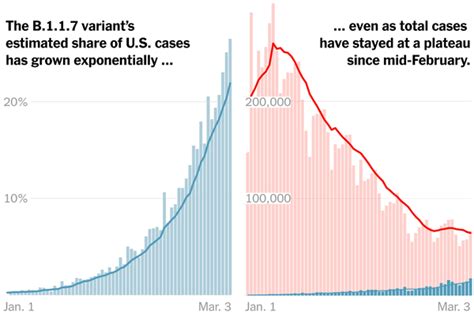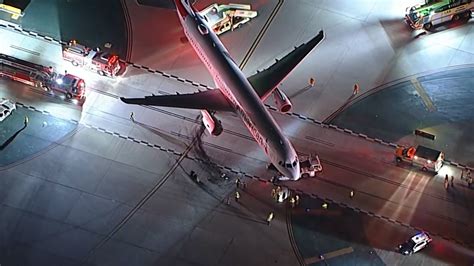
CNN and national correspondent John Avlon have parted ways, several months after his on-air remarks about a defamation case involving former President Donald Trump drew scrutiny and internal concern.
John Avlon, a CNN national correspondent and political analyst, is no longer with the network after his commentary on the air regarding a defamation case involving former President Donald Trump raised some concerns. The split comes after Avlon’s remarks were perceived by some within CNN as problematic in light of the network’s efforts to maintain impartiality, particularly concerning legal matters involving significant public figures.
CNN confirmed Avlon’s departure but did not provide specific details about the circumstances surrounding his exit. According to reports, Avlon’s commentary, which occurred earlier this year, centered on the financial penalties Trump faced in the defamation lawsuit brought by writer E. Jean Carroll. Sources inside CNN have suggested that Avlon’s remarks created worries about potential conflicts of interest and the appearance of bias given the ongoing legal battles and the network’s need to maintain journalistic integrity.
“John has been a valuable member of the CNN team, and we appreciate his contributions,” a CNN spokesperson said. “We wish him all the best in his future endeavors.”
Avlon joined CNN in 2018 as a political analyst and commentator, playing a significant role in the network’s coverage of political events, elections, and policy debates. Before joining CNN, he served as the editor-in-chief and managing director of The Daily Beast and has authored several books on American politics and history. His expertise in political analysis made him a frequent presence on CNN’s news programs and special coverage events.
The circumstances leading to Avlon’s departure highlight the challenges media organizations face in balancing commentary and news reporting, particularly when covering politically sensitive legal cases. CNN, like other major news networks, has strict guidelines regarding impartiality and conflicts of interest to ensure its reporting is perceived as fair and unbiased.
While CNN has not publicly disclosed the exact nature of Avlon’s comments, it is understood that his analysis of the Trump defamation case was seen by some as potentially prejudicial. This created internal discussions about whether his remarks aligned with the network’s standards for objective journalism. Avlon’s departure also comes at a time when CNN is actively working to reposition itself as a more neutral news source under the leadership of its new CEO, Chris Licht, who has emphasized the importance of unbiased reporting.
“Our goal is to provide audiences with the facts and let them draw their own conclusions,” Licht stated in an internal memo earlier this year. “It is crucial that we maintain the highest standards of journalistic integrity to earn and keep the trust of our viewers.”
The decision to part ways with Avlon underscores the broader challenges news organizations face in maintaining credibility in an increasingly polarized media landscape. Cable news networks, in particular, have come under scrutiny for the perceived bias in their coverage, and CNN’s leadership has signaled a commitment to reducing partisan commentary and focusing on fact-based reporting.
As Avlon departs CNN, the network is expected to re-evaluate its approach to political analysis and commentary to ensure that all on-air personalities adhere to the highest standards of journalistic ethics. This may involve additional training, stricter guidelines for discussing legal cases, and a renewed emphasis on impartiality in political coverage.
Avlon’s exit also raises questions about the future of political commentary on cable news and whether networks will increasingly prioritize objective reporting over opinionated analysis. The trend towards neutrality could have significant implications for the way news is presented and consumed, potentially leading to a more informed and less divisive public discourse.
“The media landscape is constantly evolving, and it is essential for news organizations to adapt to the changing expectations of their audiences,” said media analyst Jane Smith. “The challenge is to provide comprehensive coverage while maintaining the highest standards of journalistic integrity.”
Avlon has not yet publicly commented on his departure from CNN. However, sources close to him suggest he is exploring other opportunities in media and academia. His experience as a political analyst, author, and editor positions him as a valuable asset in various roles, and he is expected to continue contributing to public discourse through his writing and commentary.
In summary, John Avlon’s departure from CNN highlights the complexities and challenges of maintaining journalistic integrity in a polarized media environment. As CNN and other news networks navigate the evolving landscape, the emphasis on impartiality and fact-based reporting is likely to become even more pronounced.
Expanded Details and Background Information
John Avlon’s career before joining CNN was marked by significant roles in media and political commentary. He served as the editor-in-chief and managing director of The Daily Beast, a prominent online news and opinion website. During his tenure, The Daily Beast gained recognition for its investigative journalism, political analysis, and cultural coverage. Avlon’s leadership at The Daily Beast helped shape the website’s identity as a platform for smart, engaging, and often provocative journalism.
Before his role at The Daily Beast, Avlon worked as a speechwriter for former New York City Mayor Rudy Giuliani. This experience provided him with firsthand exposure to the inner workings of politics and government. His work as a speechwriter honed his ability to craft persuasive and impactful messages, skills that would later serve him well in his roles as a political analyst and commentator.
Avlon is also an accomplished author, having written several books on American history and politics. His works include “Independent Nation: How American Independent Voters Can Change American Politics,” “Wingnuts: How the Lunatic Fringe Is Hijacking America,” and “Washington’s Farewell: The Founding Father’s Warning to Future Generations.” These books reflect his deep understanding of American political thought and his commitment to promoting informed civic engagement.
His transition to CNN in 2018 was a natural progression for someone with his background and expertise. As a CNN political analyst and commentator, Avlon provided viewers with insights into the day’s headlines, election results, and policy debates. He appeared frequently on CNN’s news programs, offering his analysis alongside other commentators and journalists.
The defamation case involving former President Donald Trump and writer E. Jean Carroll gained significant media attention due to its high-profile nature and the legal issues it raised. Carroll accused Trump of defamation after he denied her allegations of sexual assault. The case resulted in a jury finding Trump liable for defamation and awarding Carroll millions of dollars in damages.
During CNN’s coverage of the case, John Avlon provided commentary and analysis, like other political commentators. The specifics of his remarks that raised concerns within CNN have not been publicly disclosed. It’s believed that his analysis may have been perceived as leaning too far in one direction, potentially compromising the network’s commitment to impartiality.
CNN’s decision to part ways with Avlon underscores the increasing scrutiny that news networks face regarding their coverage of politically sensitive legal matters. In an era of heightened political polarization, media organizations are under pressure to avoid even the appearance of bias.
Under the leadership of Chris Licht, CNN has embarked on a mission to reposition itself as a more neutral news source. Licht’s vision for the network involves reducing partisan commentary and focusing on fact-based reporting. This shift is aimed at attracting a broader audience and restoring trust in CNN’s journalism.
Licht has emphasized the importance of journalistic integrity and has urged CNN employees to adhere to the highest ethical standards. He has also called for a more balanced approach to political coverage, with less emphasis on opinion and more focus on factual reporting.
The departure of John Avlon aligns with Licht’s efforts to reshape CNN’s image and culture. By parting ways with a commentator whose remarks were perceived as potentially biased, CNN is sending a message that it takes impartiality seriously.
The challenges facing CNN are not unique. Other cable news networks are also grappling with how to navigate the polarized media landscape while maintaining their credibility. Some networks have faced criticism for their perceived bias, while others have struggled to attract viewers in an increasingly fragmented media environment.
The debate over objectivity in journalism has been ongoing for decades. Some argue that true objectivity is impossible, as all journalists have their own biases and perspectives. Others contend that journalists have a responsibility to strive for objectivity, setting aside their personal opinions and presenting the facts in a fair and unbiased manner.
In recent years, the rise of social media has further complicated the debate over objectivity. Social media platforms have enabled the spread of misinformation and disinformation, making it more difficult for audiences to distinguish between credible news sources and biased propaganda.
News organizations are increasingly reliant on audience trust to maintain their credibility and relevance. When audiences lose trust in a news source, they are more likely to turn to alternative sources, including social media and partisan websites.
The departure of John Avlon from CNN also raises questions about the role of political commentators in cable news. Some argue that commentators provide valuable insights and analysis, helping audiences understand complex political issues. Others contend that commentators often engage in partisan rhetoric, further polarizing the political landscape.
As cable news networks re-evaluate their approach to political commentary, they may consider reducing the number of opinionated commentators and increasing the emphasis on fact-based reporting. This shift could lead to a more informed and less divisive public discourse.
John Avlon’s experience and expertise will likely remain valuable assets in the media landscape. As an author, editor, and political analyst, he has a deep understanding of American politics and history. He is expected to continue contributing to public discourse through his writing and commentary.
The media landscape is constantly evolving, and news organizations must adapt to the changing expectations of their audiences. The challenge is to provide comprehensive coverage while maintaining the highest standards of journalistic integrity. The departure of John Avlon from CNN underscores the complexities of this challenge.
Impact on CNN’s Programming and Future Strategy
The departure of John Avlon from CNN raises several questions about the network’s programming strategy and its commitment to reshaping its image as a more neutral news source. Avlon was a frequent presence on CNN’s news programs, offering his analysis on political events, elections, and policy debates. His absence will likely be felt by viewers who appreciated his insights and perspectives.
CNN may need to re-evaluate its pool of political analysts and commentators to ensure that all on-air personalities align with the network’s new emphasis on impartiality. This could involve recruiting new voices or providing additional training to existing commentators.
The network may also consider adjusting its programming format to reduce the amount of partisan commentary and increase the focus on fact-based reporting. This could involve expanding its investigative journalism efforts, adding more in-depth analysis segments, and reducing the reliance on opinion-based panel discussions.
CNN’s leadership has signaled a commitment to restoring trust in the network’s journalism. This effort will require a sustained focus on journalistic integrity, transparency, and accountability. The network must demonstrate to its audience that it is committed to providing fair and unbiased coverage of the news.
The departure of John Avlon could also have implications for CNN’s ratings. Some viewers may be disappointed by the loss of a familiar face and voice, while others may appreciate the network’s efforts to reduce partisan commentary. It remains to be seen how these changes will affect CNN’s overall viewership.
CNN’s efforts to reshape its image as a more neutral news source come at a time when the media landscape is undergoing significant changes. The rise of streaming services, social media, and alternative news sources has created a more fragmented media environment. Cable news networks are facing increasing competition for viewers and advertising dollars.
To succeed in this evolving landscape, CNN must offer compelling content that attracts a broad audience. This requires a careful balance between providing informative news coverage and engaging entertainment. The network must also adapt to the changing consumption habits of its audience, offering its content across multiple platforms, including television, online, and mobile.
CNN’s future success will depend on its ability to maintain its credibility, attract viewers, and adapt to the changing media landscape. The departure of John Avlon is just one example of the challenges and opportunities facing the network as it navigates this complex environment.
The Broader Context of Media Polarization
The situation at CNN with John Avlon reflects a much broader issue in the media landscape: the increasing polarization of news and commentary. Over the past few decades, media outlets have become increasingly aligned with specific political ideologies, leading to a situation where audiences often seek out news that confirms their existing beliefs.
This polarization has been driven by several factors, including the rise of cable news, the growth of the internet, and the increasing political divisions within society. Cable news networks have often catered to specific political audiences, providing partisan commentary and analysis that reinforces existing beliefs. The internet has enabled the spread of misinformation and disinformation, making it more difficult for audiences to distinguish between credible news sources and biased propaganda.
The consequences of media polarization are far-reaching. It can lead to a more divided society, where people are less likely to understand or empathize with those who hold different political views. It can also undermine trust in institutions, including the media, government, and science.
News organizations have a responsibility to address the problem of media polarization by providing fair and unbiased coverage of the news. This requires a commitment to journalistic integrity, transparency, and accountability. It also requires a willingness to challenge existing beliefs and to engage with those who hold different political views.
The departure of John Avlon from CNN highlights the complexities of this challenge. It is not always easy to determine what constitutes fair and unbiased coverage, and different people may have different interpretations of the same events. However, by adhering to the highest standards of journalistic ethics, news organizations can strive to provide audiences with the information they need to make informed decisions.
The Future of Political Commentary
The departure of John Avlon from CNN also raises questions about the future of political commentary in the media. As news organizations re-evaluate their approach to political coverage, they may consider reducing the emphasis on opinionated commentary and increasing the focus on fact-based reporting.
This shift could have several implications for the media landscape. It could lead to a more informed and less divisive public discourse, as audiences are exposed to a wider range of perspectives and are encouraged to think critically about the issues facing society. It could also lead to a decline in the popularity of partisan commentators, as audiences become more interested in objective news coverage.
However, there are also potential drawbacks to reducing the emphasis on political commentary. Some argue that commentators provide valuable insights and analysis, helping audiences understand complex political issues. They also play a role in holding politicians accountable and in challenging the status quo.
The challenge for news organizations is to find a balance between providing informative news coverage and engaging commentary. This requires a careful consideration of the role of commentators and a commitment to ensuring that all voices are heard.
As the media landscape continues to evolve, it is likely that the role of political commentary will also change. It remains to be seen what the future holds for this important aspect of the media ecosystem.
FAQ Section
1. Why did John Avlon leave CNN?
John Avlon’s departure from CNN stemmed from concerns raised internally about his on-air commentary regarding a defamation case involving former President Donald Trump. While CNN has not disclosed the specific details, sources suggest that Avlon’s remarks were perceived by some as potentially compromising the network’s commitment to impartiality, particularly given the ongoing legal battles and CNN’s efforts to present itself as a neutral news source.
2. What was John Avlon’s role at CNN before his departure?
Prior to his departure, John Avlon served as a national correspondent and political analyst for CNN. He frequently appeared on CNN’s news programs and special coverage events, providing analysis on political events, elections, and policy debates. He joined CNN in 2018 and was considered a valuable member of the network’s team.
3. What is CNN’s stated reason for Avlon’s departure?
CNN’s official statement regarding John Avlon’s departure was brief and did not provide specific reasons. A CNN spokesperson stated, “John has been a valuable member of the CNN team, and we appreciate his contributions. We wish him all the best in his future endeavors.” This statement is typical in such situations, avoiding any detailed explanation of the circumstances.
4. How is CNN changing its approach to news coverage, and how does this affect the situation with John Avlon?
Under the leadership of its new CEO, Chris Licht, CNN has been working to reposition itself as a more neutral news source. This involves reducing partisan commentary and focusing on fact-based reporting. Licht has emphasized the importance of journalistic integrity and has urged CNN employees to adhere to the highest ethical standards. The departure of John Avlon aligns with this broader effort to reshape CNN’s image and culture by parting ways with a commentator whose remarks were perceived as potentially biased.
5. What are John Avlon’s plans after leaving CNN?
As of the latest reports, John Avlon has not publicly commented on his departure from CNN. However, sources close to him suggest that he is exploring other opportunities in media and academia. Given his background as a political analyst, author, and editor, he is expected to continue contributing to public discourse through his writing and commentary.
6. What was the defamation case involving former President Donald Trump that led to Avlon’s scrutiny?
The defamation case involved writer E. Jean Carroll, who accused Trump of defamation after he denied her allegations of sexual assault. The case gained significant media attention, and a jury found Trump liable for defamation, awarding Carroll millions of dollars in damages. Avlon’s commentary on this case is what led to the internal concerns within CNN.
7. How does CNN ensure impartiality and avoid conflicts of interest in its reporting?
CNN, like other major news networks, has guidelines regarding impartiality and conflicts of interest. These guidelines are designed to ensure that its reporting is perceived as fair and unbiased. CNN provides training, sets stricter guidelines for discussing legal cases, and places renewed emphasis on impartiality in political coverage.
8. What impact does Avlon’s departure have on CNN’s programming?
Avlon’s departure could require CNN to re-evaluate its pool of political analysts and commentators to ensure all on-air personalities align with the network’s new emphasis on impartiality. CNN may consider adjusting its programming format to reduce the amount of partisan commentary and increase the focus on fact-based reporting.
9. Is CNN’s situation unique, or are other news networks facing similar challenges?
The challenges facing CNN are not unique. Other cable news networks are also grappling with how to navigate the polarized media landscape while maintaining their credibility. Many networks have faced criticism for perceived bias and struggled to attract viewers in a fragmented media environment.
10. How has the media landscape changed in recent years, and how has this affected news organizations?
The rise of social media, streaming services, and alternative news sources has significantly changed the media landscape. This has led to a more fragmented media environment, increased competition for viewers, and the spread of misinformation. News organizations are increasingly reliant on audience trust to maintain credibility and relevance.









